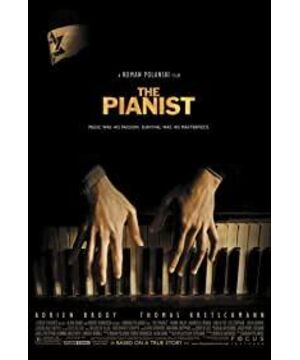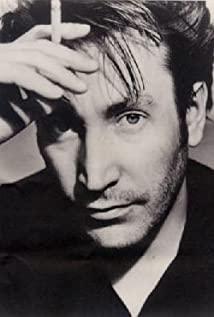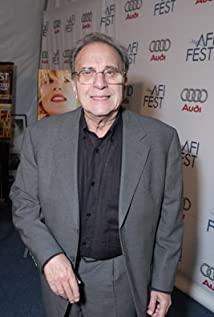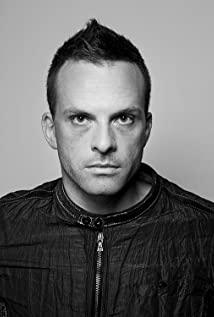The encounter between the German officer and the pianist is a good ending, but the ending is never everything.
In 2003, 29-year-old Adrien Brody became the youngest actor to win the Oscar for Best Actor that year for his biographical film The Pianist. In 2000, the original character of the film, Polish Jewish pianist Wladyslaw Szpilman, died.
Concentration camps, narrative beyond cinema
The concentration camp is an important symbol of film and television literature related to the anti-fascist war. Whether in the movies "Life Is Beautiful," "Schindler's List," "The Boy in the Striped Pyjamas," or in the German series "Our Fathers," the Holocaust is depicted as a wooden train car for freight. Like canned sardines, Jewish men, women, and children drove for three days and three nights, going full and returning empty. The factory-like Auschwitz concentration camp, the stinking narrow bunks, the searchlights sweeping around at night and the wolves patrolling, women, old people and children going to bathe, making people into soap... In people's minds, these The entry is pinned to World War II. Well-known World War II literature also focuses on concentration camps, such as "Annie's Diary," which chronicles camp life, and "Death Fugue" by poet Paul Celan (he once said: "After Auschwitz, writing poetry is barbaric.")
Different from the above works, "The Pianist" is set in Warsaw, Poland from 1939 to 1945, providing the audience with a more bird's-eye perspective on the Holocaust in World War II. The pianist Szpliman experienced first-hand the important points in Poland under the German occupation, and his personal and family members' estimates of the changes clearly show the Nazi actions against Polish Jews.
In 1939, Nazi Germany invaded Poland, and its actions gradually stripped Jews from society, turning big businessmen and artists into naked and dignified people. Of course, this process does not happen overnight. Jews were unemployed, the German government restricted the amount of Jewish assets and the scope of activities in public spaces, forced all Jews in Warsaw to wear identification badges, moved to Jewish ghettos, transported Jews to concentration camps on a large scale, and used a small number of young Jewish laborers in Warsaw. Suppress the Warsaw Ghetto uprising with tanks. In the film, when the Szpliman family moved to the quarantine area, the Polish girl who fell in love with Szpliman saw them off by the side of the road and muttered: "This is absurd!" , and even create a word to describe the hell and the suffering of human nature in this recent history of mankind.
Because the film tells the war from the pianist's point of view, the concentration camp is a metaphorical world behind the curtain, a story beyond the story. It devoured Szpliman's violinist father, elegant mother, two straight-backed younger sisters, and a radically pessimistic younger brother. That part of the concentration camp world that was shrouded in black mist and was not told but existed in the movie "The Pianist", together with "Life Is Beautiful", "Schindler's List" and "The Boy in the Striped Pyjamas", forms part of the narrative of the concentration camp movies.
Family, Noah's Ark Disappeared
The first third of the film focuses on Szpliman's family, and the Ark doesn't disintegrate until Auschwitz becomes a vague end point. The family disappears from the film's narrative when the pianist is pulled out of the line by Jewish police who have defected to the German government before boarding the train.
As the eldest brother in the family, the protagonist Szpliman has been running to protect his family. Unlike his romantically intense and passive brother, Szpliman is the gentle and calm one in the family. The younger brother is Anjulas, who builds barricades with tables, chairs, wardrobes, and pianos on the streets of Paris in "Les Miserables." The younger brother was angry when his elder brother asked the Jewish police who had taken refuge in Germany to release him. "Did you kneel down and beg him? Did you bribe him?" "I don't have any money."
If Szpliman was the ark's oarsman, their aging father was the ark itself. Their family faces the loss of dignity and right to life step by step together. Although the words "people are, home is" are not spoken, they exist in every scene in the first third of the film.
In the family part of the narrative, the twenty poland milk candy is the most powerful metaphor in the movie.
Before boarding the train, the reunited family of six sat on a dusty, sun-baked square. A woman behind her cried and repeated: "How could I do something like that?" Her husband stood by with his hands down. The cries made everyone uneasy, and people whispered that the woman suffocated her crying baby while hiding. Jewish children sold toffee, and the elderly father took out ten yuan in Polish coins and took small bills from his family. He collected 20 yuan and bought a candy. Peeling off the candy wrapper, taking out a knife and cutting it into six small cubes, the family ate the candy silently.
This piece of candy announces the disintegration of the core intimate relationship between people before the war and the stripping of the most basic social attributes.
"Before going to Auschwitz, a family of six silently shared a toffee."
In the next moment, the huge waves were taken, the boat no longer existed, and the survival as an individual was ushered in.
Pianist's Loft
——Personal choice in the Warsaw Ghetto Uprising and Purgatory
Not boarding the train to Auschwitz did not mean escaping Nazi persecution.
After being separated from his family, Szpliman worked as a coolie in a labor camp in the Warsaw Ghetto. During this period, he helped friends in the camp to transport guns and ammunition to prepare for the uprising. But on the eve of the uprising, he escaped from the ghetto with the help of friends and lived as a stowaways in Nazi Poland.
On April 19, 1943, Jewish groups in the Warsaw Ghetto revolted, known as the Warsaw Ghetto Uprising. It is extremely interesting that the attic where Szpliman hides in the film is facing the head-to-head confrontation of the Warsaw Ghetto uprising, narrating this unsuspenseful confrontation of guns and cannons from the perspective of a pianist. Burning buildings, round-the-clock gunfire, burning protesters who jumped off the building to commit suicide, German soldiers whistling and laughing loudly. On May 16, 1943, the uprising failed. The Jews in these labor camps persisted in front of the German war machine for nearly a month, leaving behind a blackened and then snow-covered ruins of a building, and a wall of cannons pierced through. wall.
Although "The Pianist" is a biographical film, the whole film is very restrained on Szpliman's psychological narrative: the narrative of the environment comes from the perspective of the characters, but the environment does not depend on the subjective interpretation of the characters. This narrative reinforces the epic nature of the film, in other words, it's not a "Nachsethian" film, not Freud, not Woolf.
Therefore, Szpliman's emotions and opinions about the uprising can only be known from the conversations he and his Polish friends had while standing at the window watching the ruins.
S: " I wish I was in there. "
F: " Don't be silly, it's over, you should be proud that it happened . God, they actually rebelled."
S: "Yes, the Germans are also amazed by this."
F: "They were shocked, they didn't expect it. No one thought the Jews would rebel."
S: "Well, what good is their resistance?"
F: "What good? Wally, you surprise me. They die with dignity, that's what it's good for. You know what? Now the Poles wake up too. We're ready, we're going to fight, you know Is it any good?"
Szpliman felt guilty for leaving his companions to escape, and questioned the meaning of the doomed uprising. His friend's answer to these two questions points to two essences:
- Rebellion is a personal choice, and those who choose are noble, but it does not mean that those who make other choices are despicable;
2. The doomed resistance is to dig a hole in the spiritual wall, and human beings live by this little dignity.
Szpliman's second hideout is located in the heart of German power, facing the Polish-German secret police Shuhe Military Hospital. Here, he once again witnessed the revolt of the Poles before the defeat of the German army.
Two attics, two painful bystanders.
Does Szpliman lack courage? Do not. Otherwise, he wouldn't have been transporting bullets in a labor camp where overseers randomly killed people, preparing for an uprising. But why did he choose to leave?
People have their own values. The insurgents put dignity and integrity first (the pianist's radical younger brother is such a person), Szpliman puts life first, and the core of Szpliman's life is music and art. piano.
Survive, the proposition of the juvenile pie
A writer once said:
"This resistance is not the kind of resistance that fights and moves,
But from the root of man, you want me to destroy,
I do not. "
If you put aside the historical background of the film, from a more abstract point of view, "The Pianist" is not like any World War II movie, but has the same origin with "The Fantasy Drift of Pi". How to survive in despair and use the little energy left to survive in the dangerous sea/massacre is the proposition that Pi and Szpliman face together.
How easy it is to die, show weakness to tigers, stop collecting rainwater, or stop walking the streets of Warsaw in hiding, or even run away when cannons bomb the hideout building. Thousands of ways, effortlessly.
The hard part is making the "live" choice and then trying to live.
Szpliman looks like a decadent old wolf as he wanders the ruins of Warsaw, frantically searching for water and food. It is said that Adrian Brody was hungry for a few days while filming this part, and after filming ended, he ate the whole pig by himself.
An artist, under the deprivation of the Nazis, never gave up the social attributes endowed by art, and tried to maintain his dignity, but in the face of extreme starvation, only his survival instinct was left, and his animality was completely released. It's interesting.
Finally the German officer shows up, and the unkempt Szpliman proves himself a pianist by playing Chopin's Ballade No. 1.
So far, humanity has returned, and Szpliman has survived.
It's a good ending, but endings are never everything.
over.
View more about The Pianist reviews











